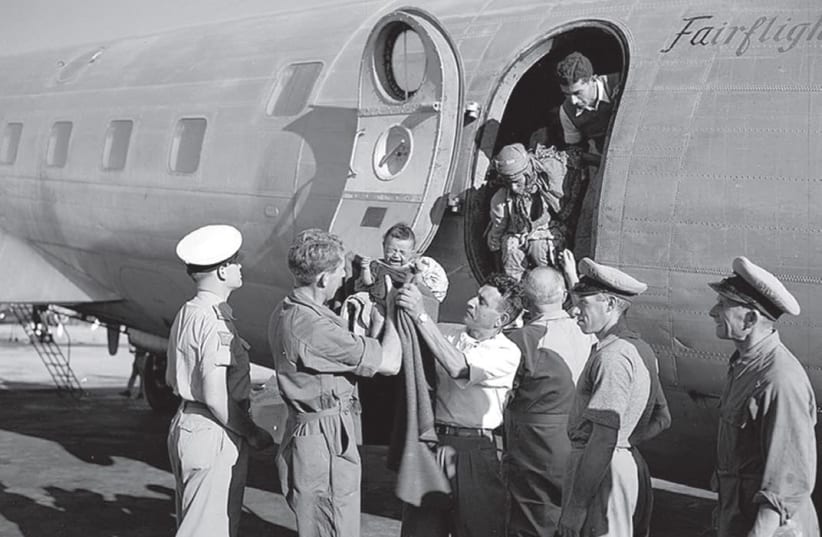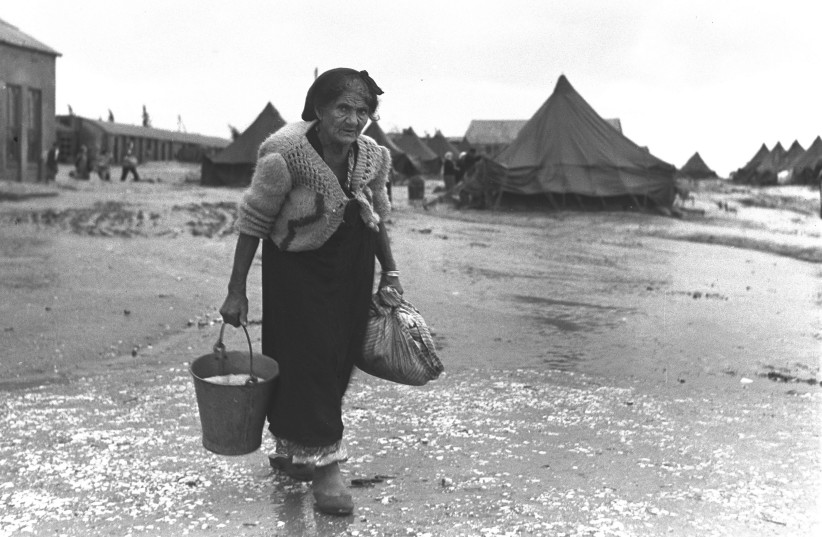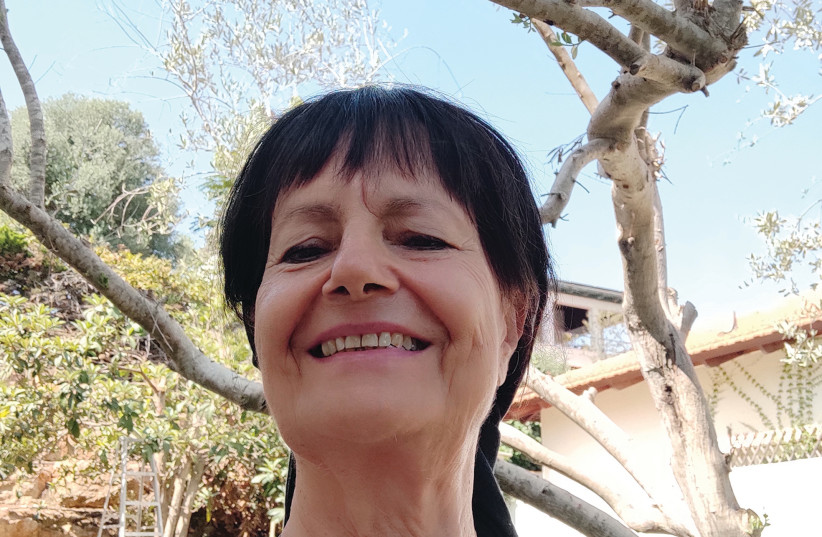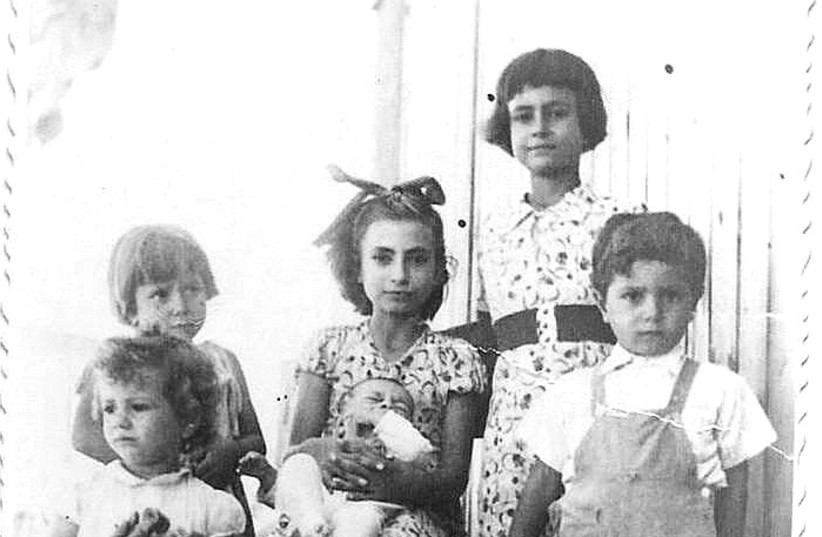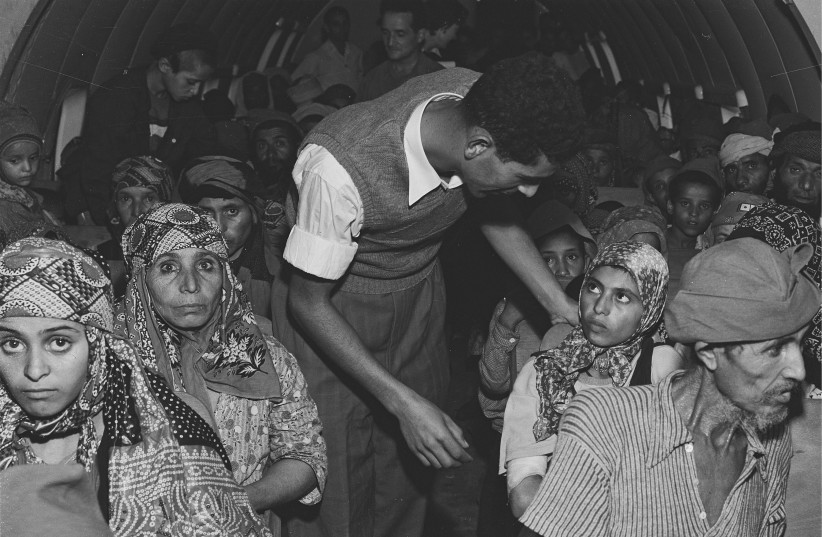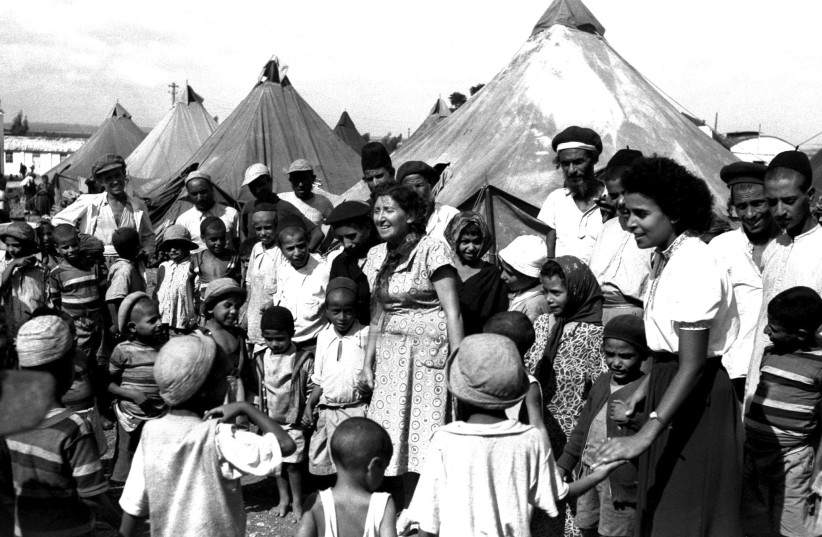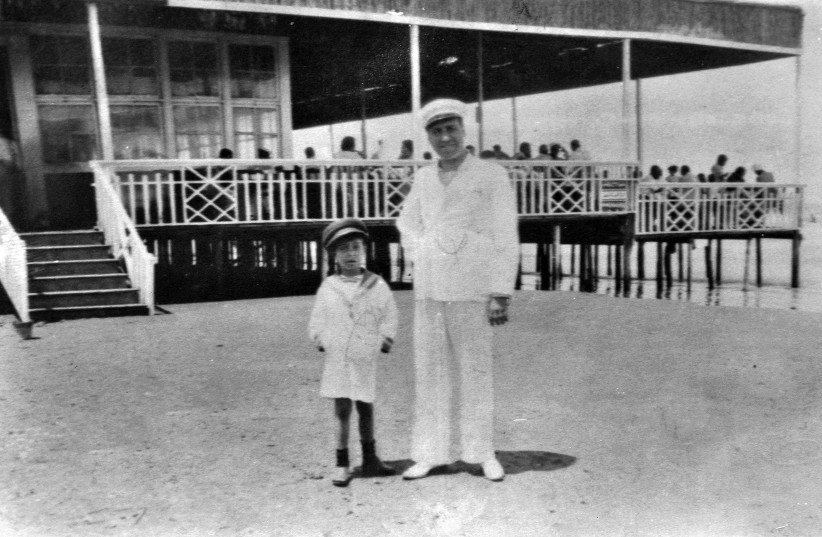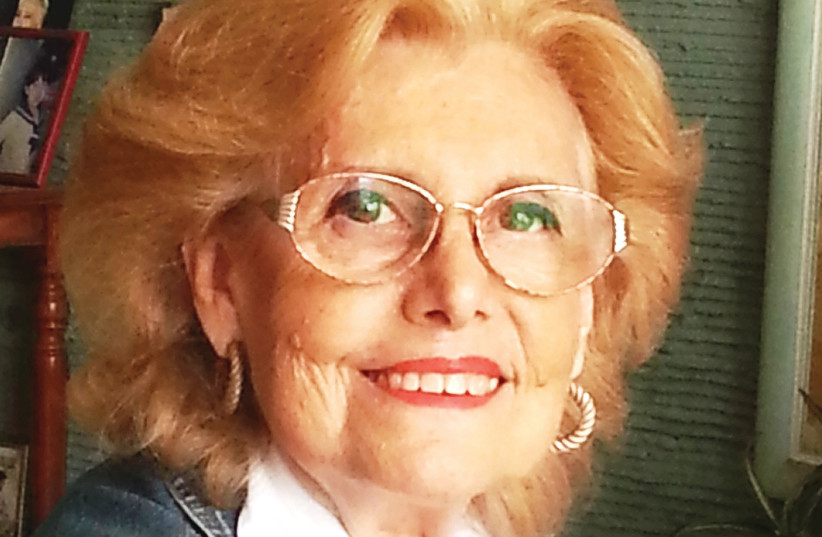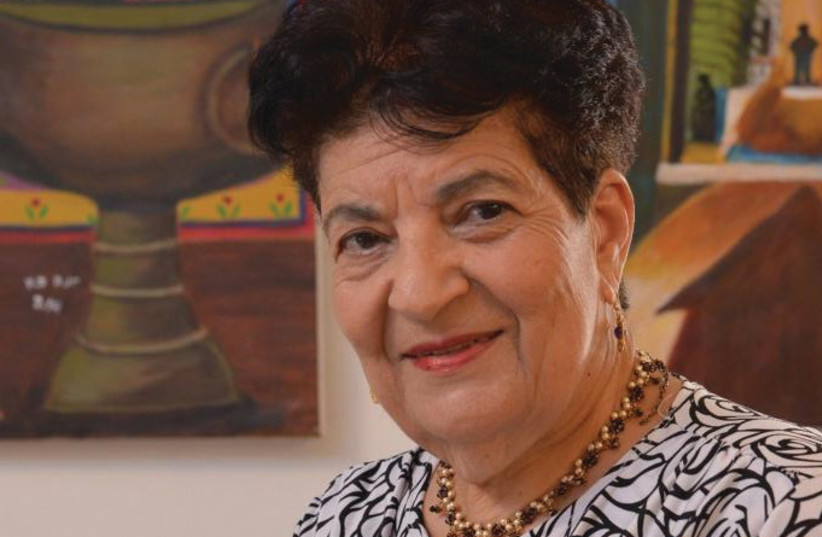The festival of Sukkot marks the journey and wandering of the Jewish people through the desert in Biblical times before arriving in the Land of Israel. Through the centuries, Jews have suffered persecution and endured many periods of wandering, and after nearly two millennia, gathered from the exiles with the establishment of the modern State of Israel in 1948.
As the new state was taking root, an estimated 850,000 Jews living in Arab countries were being expelled or fled their homes in those countries, says Ashley Perry, CEO of the Heritage Center for Middle East and North Africa (MENA) Jewry.
Perry was central in passing a law in the Knesset marking a national day of commemoration – November 30 – for the Jews of MENA.
“The story of the suffering of the Jews driven out of the Middle East and North Africa is one that still needs to be told because it has yet to fully reach the national or international agenda,” he tells The Jerusalem Post. “It is both painful and remarkable and a testament to the tenacity, diversity and indigeneity of the Jewish People in this region,” he adds.
The stories you are about to read are of three individuals who look back on the countries they left at a tender age, as violence sprung up against their families and community, and who then overcame the challenges facing them in their new country, their true home: Israel, to build a new legacy.
“I WAS five years old when we migrated to Israel – our homeland, the land of milk and honey,” recalls Lydia Bar-Av, who has since had an illustrious career as a renowned Israeli poet and literature teacher after coming to Israel with her family from Libya ”in the blessed year 1950.”
The first decade of her family’s life in the Jewish state was spent in a maabara (transit camp) – actually two.
“After arriving, we stayed two years in a refugee camp – #1 – then moved to refugee-camp #2, where we lived more than seven years,” she has told audiences around the world who come to hear her speak on how this little girl living in such adverse conditions not only made it through those years, but even rose to prominence in the State of Israel.
Her family of eight lived in a “hut [that] was small and stuffy so I used to stay out in nature most of the day.” Instead of allowing these conditions to hold her back, she exploited the situation to launch her career.
“It is in this environment that I wrote all my diaries that later became the basis of four poetry books,” Bar-Av maintains.
She refers to her parents, Shimon and Ida Hassan, as “the real heroes,” explaining that “they set a personal example for me. From them I learned to focus on the things that really matter. Thanks to them I developed an inner strength to deal with my difficulties,” the poet reflects.
“I learned that in spite of my difficult conditions, I can still manage to be a good pupil and win a scholarship for high school,” she continues. “I learned how to get along with people that are different from me.”
Her father became very sick, but through it all, “my parents never complained. They always thanked God [who] brought them to the Promised Land.”
In the refugee camp setting, she lived amid a modern-day ingathering of the exiles from the Arab world: Iraqis, Moroccans, Egyptians and Yemenites.
“They dressed differently and spoke a strange Arabic that I did not understand,” recounts Bar-Av. “It was a challenging and enriching experience to get along with everyone in peace and mutual dignity.”
Then she entered broader Israeli society.
“At high school... I was the only pupil from the refugee camp. I learned to get along with friends from well-established families. I did not let anybody know what my situation at home was; I was proud.”
In the decades since her early years in Israel, she has been proud to tell of her family background in the old country.
“Our Jewish family lived in Libya for many centuries,” says Bar-Av, adding that she was born in Khoms, “a small fishermen’s town in Libya by the seashore.”
She recalls that there were “good relations with the Arabs, but there were occasional pogroms against Jews. My young father and his brother were brutally attacked. His brother was killed and he himself was badly wounded. The memories of this attack haunted him all his life in his nightmares.”
Then came the establishment of the modern Jewish state.
“After the end of World War Two, the spirit of Zionism began drifting into our town Khoms. Emissaries from Israel came to Libya. They told us about what was going on in Israel. Our 2,000-year-old dream was becoming a reality. A new spirit of redemption and enthusiasm overwhelmed our town.”
As they set out on the journey to their homeland, “I remember women cheering, singing and dancing on the ship deck.”
During her adult life in Israel, which has included “almost 40 years of teaching, I educated thousands of pupils, who became good and productive citizens. I’m still in touch with some of them. As a poet and an author, I tell the amazing story of my generation that despite all the hardships... is a story of love, survival and success.”
LEVANA ZAMIR was born in Cairo in 1938, to “well-established families in Cairo: the Vidal family from my father’s side, and the Mosseri family from my mother’s,” she tells The Jerusalem Post. “Both families arrived from Italy to Egypt during the mid-18th century.”
At the time of the establishment of the State of Israel a decade after she was born, Egyptian Jewish community institutions were “at the height of their splendor,” says Zamir.
She says that the community boasted “16 great Jewish schools with high standards of education, established and maintained by the Jewish community, [among them] five in Cairo and nine in Alexandria; two Jewish hospitals among the best in the world, in Cairo and Alexandria, established and fully maintained by the Jewish community; retirement homes, philanthropic organizations for orphans and the needy; more than 60 magnificent synagogues.
“All this stopped for me on May 14, 1948,” she laments, however, referring to the date that the modern Jewish state declared its independence and when a clampdown by Egyptian authorities began.
“Ten Egyptian officers burst into our house at midnight, searching everywhere,” Zamir recalls. “They found nothing and left. They did the same to my uncle Habib, the brother of my father, they found nothing... but they took him to prison, saying he is a Zionist. They did the same to 1,300 Jewish men and 50 women.”
The authorities confiscated the family printing business, “under a special law by King Farouk that every imprisoned Jew is a traitor,” she adds.
“All of a sudden, being a Jew was a crime… In 1950, after almost two years in prison under very bad conditions, my uncle was expelled directly from prison to the ship, and we had to leave too, with just one suitcase and 20 pounds for each one of us – compelled to leave behind all of our assets,” Zamir recounts to the Post.
Then came the journey to the Promised Land.
“The Israel-Egypt frontiers were closed of course, so we left for Marseille in France.” Zamir says that she “was so glad going to France, to Paris. But we were just welcomed to a refugee camp near Marseille.”
This was certainly not the ultimate destination, and “after a few months, we were on a ship on our way to the Land of Israel,” a voyage that culminated with “such happiness when we saw Mount Carmel from the sea,” as the ship approached the Haifa port.
Initially, she says, she and her six brothers were “so glad” to receive a “big tent only for us” in a maabara in the mountains of Tiberias. “But the winter of 1950 in Tiberias was especially cold, rainy and windy. In the middle of the night the tent blew [away],” exposing them to “all the rain.”
In retrospect, it was a bittersweet experience, Zamir says. At holiday times, the family now finds itself looking back and “laughing about our own sukkot and our own Exodus,” though they also reflect “with sorrow for what our parents went through.”
Zamir says that during her adult years, she has devoted herself to working on a voluntary basis to promote the cause of the Jewish refugees from Arab lands, establishing the Coalition of Organizations of Jews from Arab Lands, serving currently as president of an organization on behalf of Egyptian Jews and as vice president of JJAC-Justice for Jews from Arab Countries. In November 2013, she was invited to speak at the United Nations to tell the story.
YONA BAR AMI was born in Manakhah, Yemen in 1942. Her hometown, with its “clear, mountainous air,” as she describes it from her memories, is located near the city, and constitutional Yemeni capital, of Sanaa.
Back then, says Bar Ami, Jews and Muslims lived in the same neighborhoods and maintained good ties, with “Muslims allowing us to live religious life freely.” In the Manakhah marketplace, “Jews and Arabs did business together,” she adds.
Her father’s family, she tells the Post, came to Manakhah from Sanaa in 1870. The family was wealthy and helped in providing for the needs of poor Jews and Muslims.
The Jews of Yemen “never stopped dreaming for a return to the Land [of Israel],” recalls Bar Ami. “In every single moment of their lives, the Jews of Yemen spoke of Jerusalem and yearned for the Holy Land.”
The same year as the establishment of the State of Israel, she says, “troubles began” for Jews: “Libels, theft and looting of the homes and shops of Jews in Sanaa. Word of what was happening in Sanaa reached all of the cities of Yemen, and Jews were struck with fear wherever they were.”
A massive Israeli airlift of the Yemenite Jews known as Operation Magic Carpet – and also coined “On Eagles’ Wings” – was carried out in 1949 and 1950.
“A deterioration of the security situation for Jews, on the one hand, and news of the establishment of the State of Israel, on the other hand, led the Jews to understand that they no longer had any reason to stay in Yemen,” says Bar Ami.
The Israeli operation is described by the Ministry of Aliyah and Integration on its website as follows:
“When, in 1949, the Imam of Yemen agreed to allow Jews to leave his country, this gave a green light for the beginning of a massive operation to bring the Jews to Israel. This operation brought thousands of Yemenite Jews to Israel within a very short period of time. It was necessary to airlift them quickly out of fears that the Imam would shortly rescind his permission.”
“We landed on a rainy and stormy night but the excitement was great,” says Bar Ami of their arrival in Israel on December 29, 1949. “The men knelt and kissed the ground.”
As with others, her family went to a transit camp and endured a process that was bittersweet: the dream of coming home but a welcome that was challenging. On a somewhat humorous side of the culture shock of Sephardim entering an Ashkenazi society, Bar Ami speaks of how “strange” it was to be served food that was void of spices.
But the challenges were real for her and her three siblings, their parents and grandparents. Rain and snow toppled their tent and her grandfather’s health was worsening. Her father bought land to build a home but her grandfather died in the camp, not living long enough to “enter the house that we had built,” she says.
A cousin of hers was among the Yemenite children who were reported missing after the arrival in Israel. She says the family could not have fathomed that there was an organized campaign in Israel to “kidnap” the children. She describes Yemenite Jews as “naive,” just wanting to work hard, study Jewish texts and pray.
Bar Ami says that she became involved in a movement demanding answers to what happened to the Yemenite children, but then made way for others to take on the struggle over the decades.
Finally in February of this year, prime minister Benjamin Netanyahu announced at a cabinet meeting: “The time has come for the families whose infants were taken from them to receive recognition by the State and government of Israel, and financial compensation as well. The compensation will not atone for the terrible suffering that the families went through and are going through. This is unbearable suffering.”
Bar Ami speaks now of her limitations in reaching an advanced age, but is full with pride over how far she has come since those days in Yemen and in a transit camp in Israel. She has three children, and says that it is “a joy to watch my grandchildren and great-grandchildren growing up and doing wonderful things, each in their own special way.”
